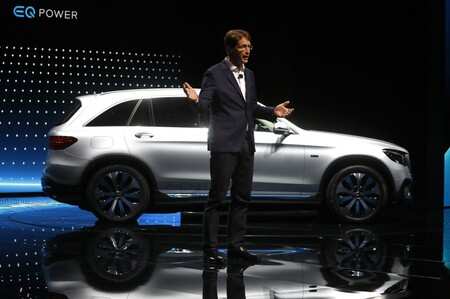
Germany: Daimler will cut development costs of new Mercedes-Benz cars by a significant amount by 2025 and will intensify alliances with rivals as a way to improve margins, Ola Kaellenius, the future chief executive, said on Monday.
“The cost structure of the electric car is above that of the combustion engine car. We are working hard on lowering this,” said Kaellenius, who is due to take over from Dieter Zetsche after the company’s annual general meeting on May 22.
“We need to work on the cost of vehicle architectures. From where we are now, we need to make a significant step by 2025 in terms of cost,” Kaellenius said, declining to provide specific figures.
The 49-year-old CEO designate said he would continue to rely on alliances to drive down development and procurement costs for Mercedes-Benz.
“The intensity of cooperations will increase. The alliances will be not only with other carmakers and suppliers, but also with technology companies,” Kaellenius said.
Daimler has struck alliances with Renault, Nissan and BMW to share development and procurement costs of trucks, buses and passenger cars.
Daimler is also relying on increasing economies of scale for electric car batteries as a way to drive down costs. It is also working to cut the use of expensive raw materials from electric car batteries. The carmaker wants to reduce the use of cobalt in electric car batteries.
Kaellenius said carmakers had also tried to increase the operating range of electric cars by experimenting with the ratio and mix of nickel cobalt and manganese in batteries.
Each electric car battery uses between 8-12 kilograms of cobalt. More than half of annual mined supply of cobalt is sourced from Democratic Republic of Congo.
Kaellenius said Daimler had moved from using an equal amount of nickel, cobalt and manganese in its electric car batteries, towards a new ratio of 8:1:1.
“Some suppliers are even talking about 9:05:05,” Kaellenius said, referring to the nickel, manganese and cobalt composition.
Daimler is pushing to develop a raft of electric and hybrid cars as a way to reach its aim of having a car fleet which is carbon neutral by 2039.
Mercedes-Benz wants to have a passenger car fleet which is carbon neutral in 20 years, the carmaker said on Monday.
To achieve this goal, Daimler wants at least half of its new car sales to be electric and hybrid cars by 2030 and wants to have carbon neutral production process by 2022, the carmaker said.
Reuters reported on Saturday that Daimler’s Chinese joint venture partner BAIC was seeking to buy a stake of between 4% to 5%.
On being asked whether he would welcome BAIC as a shareholder, Kaellenius said: “We welcome investors who see the future of mobility in Daimler and are invested for the long run.”